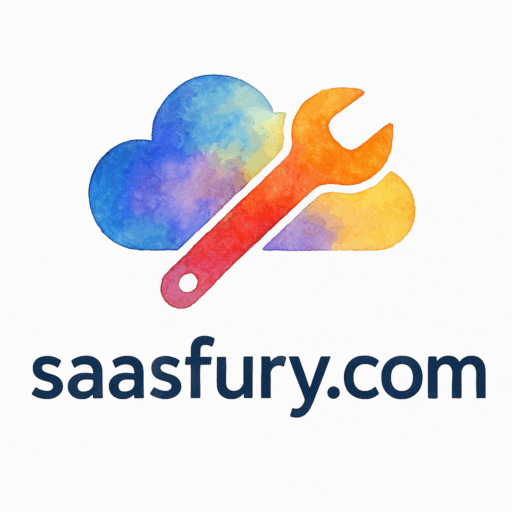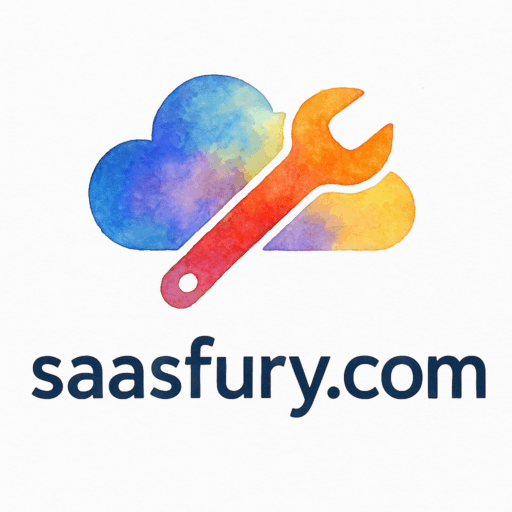Introduction: Why SaaS Tools Are a Game-Changer for Small Legal Practices
Running a small legal practice can feel like trying to juggle case files, billing sheets, and endless emails all at once. Without the right systems, it’s easy to drown in admin tasks instead of focusing on clients. That’s where SaaS tools for small legal practices come in—they streamline workflows, save time, and modernize law firms without the heavy costs of traditional software.
For professionals exploring smarter solutions, SaaS platforms like those highlighted on SaaS Fury’s business tools hub are revolutionizing how firms manage operations.
Understanding SaaS in the Legal Industry
What Is SaaS and Why Does It Matter?
SaaS (Software as a Service) is cloud-based software accessible via subscription. Unlike bulky on-premise systems, SaaS runs online, letting you log in from anywhere—office, home, or courtroom.

Benefits of SaaS for Small Law Firms
- Lower upfront costs compared to traditional software.
- Scalable solutions as your client base grows.
- Mobility with access on laptops, tablets, and phones.
- Security compliance designed for sensitive industries like healthcare, finance, and professional services.
Key Challenges Faced by Small Legal Practices
Limited Budgets and Resources
Small law firms don’t have the same IT budgets as big firms. SaaS tools level the playing field by offering enterprise-grade tech at subscription rates.
Time-Consuming Administrative Work
Billing, scheduling, and document filing eat away at billable hours. SaaS platforms—similar to those used in healthcare tools or hospitality tools—automate routine tasks and free up your time.
Client Communication Issues
Clients expect instant updates and transparency. Cloud-based tools provide secure portals and communication channels similar to omnichannel solutions in e-commerce.
Criteria for Choosing SaaS Tools for Law Firms
Ease of Use and Scalability
Choose software that works for non-tech-savvy users but also grows with your firm.
Security and Compliance
Look for encryption, GDPR compliance, and ABA-aligned features. Many platforms mirror compliance features seen in medical SaaS tools.
Integration with Existing Systems
The right tool should sync with calendars, billing systems, and email. Seamless integrations are as vital here as in retail software.
8 SaaS Tool Recommendations for Small Legal Practices
1. Clio – All-in-One Legal Practice Management
Best Features for Small Legal Practices
Clio provides complete practice management—case files, time tracking, billing, and even client intake forms—all in one dashboard.
Pricing and Accessibility
Tiered pricing makes Clio accessible to solo lawyers and growing practices alike.
2. MyCase – Streamlined Case Management
Why Lawyers Love It
With secure client portals, case updates, and task automation, MyCase improves collaboration just like consulting tools do for advisory firms.
Affordable for Small Firms
It’s priced with small practices in mind, ensuring value without compromise.
3. PracticePanther – Productivity Booster for Lawyers
Task Automation Features
Generate documents, automate reminders, and simplify billing with minimal effort.
Mobile and Remote Access
Perfect for hybrid or remote setups—something increasingly common across online education and legal industries alike.
4. LawPay – Secure Legal Payment Processing
Compliance with Legal Standards
LawPay is trusted by bar associations for compliant payment handling, similar to how patient records tools safeguard healthcare transactions.
Simplifying Client Payments
It enables clients to pay via credit card, ACH, or e-check, removing friction in billing.
5. NetDocuments – Document Management Made Easy
Organizing and Securing Legal Files
Store, organize, and retrieve legal files quickly with cloud-based management.
Collaboration Features
NetDocuments supports secure file sharing and team collaboration, similar to graphic design SaaS platforms used by creative teams.
6. Everlaw – Advanced Legal Research and Litigation Support
Powerful Research Capabilities
AI-driven search tools simplify research, ensuring faster case preparation.
Litigation Collaboration Tools
Shared litigation dashboards streamline team communication, like project management in marketing agencies.
7. Zoom – Seamless Client Communication
Virtual Court Hearings and Meetings
Zoom powers remote hearings, depositions, and secure client consultations.
Affordable and Easy to Use
Low-cost and intuitive, it’s as indispensable to legal practices as it is to language coaches.
8. Calendly – Simplified Legal Scheduling
Booking Made Easy for Clients
No more scheduling headaches—clients see your availability and book instantly.
Integrations with Other SaaS Tools
Calendly syncs with Zoom, Google Calendar, and Clio—mirroring the versatility found in scheduling SaaS.
How SaaS Tools Improve Legal Practice Efficiency
Reducing Administrative Burden
Automating repetitive tasks cuts down on non-billable hours, just like automation helps retail and e-commerce businesses.
Enhancing Client Experience
Clients appreciate fast responses and secure online access to documents.
Supporting Remote and Hybrid Work
Cloud access allows firms to function virtually—just as hospitality businesses pivoted to digital-first models.
Cost Considerations for Small Law Firms
Subscription vs. Traditional Software
SaaS tools use a subscription model, spreading costs monthly instead of requiring big upfront investments.
Hidden Costs to Watch Out For
Consider storage upgrades, per-user fees, and integration costs—similar to scaling costs in small business SaaS.
Future of SaaS in the Legal Industry
AI and Automation in Legal SaaS
AI-powered drafting and predictive analytics are transforming legal workflows, much like innovation in creative education SaaS.
The Rise of Virtual Law Firms
Cloud-based SaaS tools empower lawyers to run fully digital practices, mirroring the success of online-first businesses.
Conclusion
With the right SaaS tool recommendations for small legal practices, even solo attorneys can work as efficiently as large firms. Platforms like Clio, MyCase, and LawPay automate admin tasks, improve billing, and keep clients happy. By strategically selecting SaaS solutions, your legal practice can stay agile, secure, and future-ready.
FAQs
1. What are SaaS tools for small legal practices?
They’re cloud-based platforms that streamline billing, scheduling, case management, and communication.
2. Are SaaS tools safe for handling legal data?
Yes, they follow strict compliance standards, much like healthcare SaaS tools.
3. Which SaaS tool is best for managing documents?
NetDocuments is a top pick for secure, organized file management.
4. Can SaaS tools help me work remotely?
Absolutely—they enable remote work just like solutions built for restaurants and hospitality.
5. Do SaaS tools integrate with existing systems?
Yes, most integrate with calendars, billing, and email—similar to omnichannel SaaS used in retail.
6. Are SaaS tools too expensive for small law firms?
Not at all—many offer plans designed specifically for small businesses.
7. What’s the future of SaaS in law?
Expect AI-driven research, automation, and the growth of fully virtual law firms.

